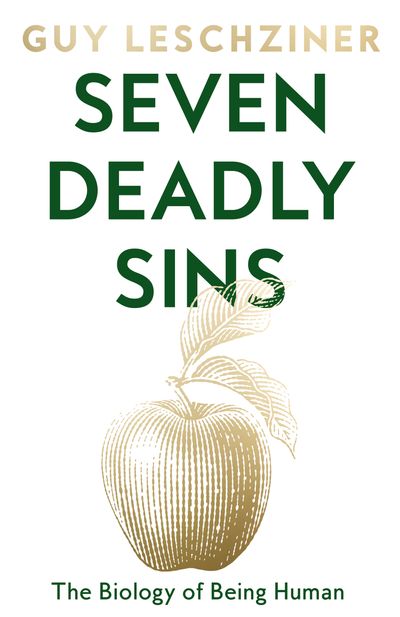Seven Deadly Sins: The Biology of Being Human
Gluttony. Greed. Sloth. Pride. Envy. Lust. Anger. These are the Seven Deadly Sins, the vices of humankind that define immorality, the roots of all evil in this world.
These sins, balanced by the Seven Cardinal Virtues, have their origins in Greco-Roman mythology and subsequently early Christianity. But do these sins really represent moral failings, or are they simply important and useful human functions that aid us? Are they really just a result of how our bodies, our psyches and our brains in particular, are wired?
This book explores the underlying nature of the Seven Deadly Sins, their neuroscientific and psychological basis, their origin in our genes, and, crucially, how certain medical disorders may give rise to them. We meet individuals whose physical and psychological conditions have given rise to these sins, where brain injury or psychological experiences have given rise to “immoral” actions, how illness has simply exposed what lies within us. We see how the origins of the definition of these traits as sins lie in evolutionary imperatives to preserve the tribe, to ensure the wellbeing of our societies. But we also learn how for all of us, these character traits are perhaps less of a moral question, and more of a biological one, raising issues of responsibility and blame in the face of sin. And perhaps most importantly, whether these traits truly represent sin, or simply reflect our intrinsic drive to survive and thrive.
PRAISE FOR THE MAN WHO TASTED WORDS -
‘A riveting study of sensory function and malfunction… He leaves the reader hankering for more, with a renewed sense of awe at the delicate, magnificent workings of the senses’ -
Guardian -
‘Full of delights that linger in the mind’ -
Independent -
‘A lucid evocation of big ideas that will make you grateful for your health, and both more appreciative and more sceptical of our symphony of senses with its brilliant, capricious conductor, the brain’ -
The Times -
‘From the opening paragraph, I was spellbound, entranced. Through real stories about what happens when our fragile perception of the world around us and within us is severed, Guy Leschziner connects us back to our senses’ -
Professor Alice Roberts -
